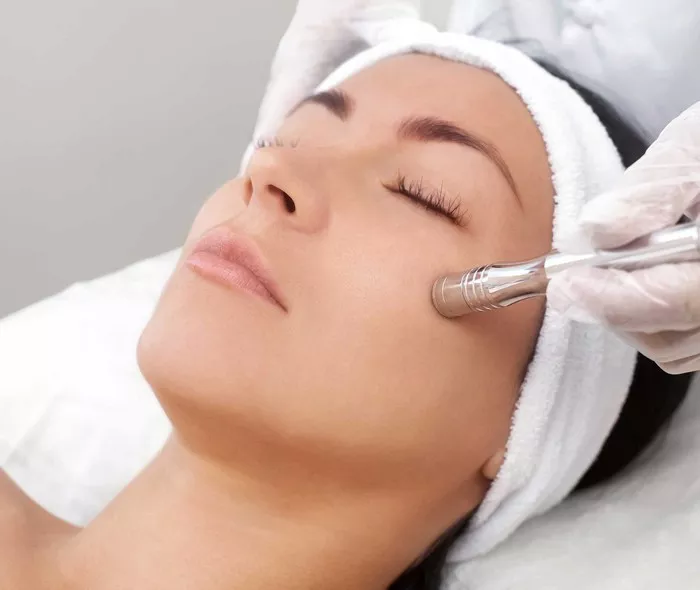Introduction:
Microdermabrasion is a popular cosmetic treatment that involves using a special device to exfoliate the outer layer of skin, revealing smoother, brighter, and more youthful-looking skin underneath. This non-invasive procedure is suitable for all skin types and can help to improve the appearance of fine lines, wrinkles, age spots, acne scars, and other skin imperfections. However, to achieve optimal results and minimize the risk of complications, it is important to care for your skin properly after microdermabrasion. In this article, we will discuss seven things to remember after microdermabrasion to ensure the best possible outcomes.
1. void Sun Exposure
One of the most important things to remember after microdermabrasion is to avoid sun exposure. The outer layer of skin has been removed during the procedure, leaving the underlying skin more vulnerable to damage from UV rays. Therefore, it is important to wear a broad-spectrum sunscreen with an SPF of at least 30 every day, even on cloudy days. You should also avoid spending extended periods of time in direct sunlight and wear protective clothing, such as hats and long-sleeved shirts, when outdoors.
2. Keep Your Skin Hydrated
Another important aspect of caring for your skin after microdermabrasion is to keep it hydrated. The exfoliation process can leave your skin feeling dry and tight, so it is important to use a gentle, non-comedogenic moisturizer to keep it hydrated and healthy. Look for moisturizers that contain ingredients such as hyaluronic acid, glycerin, and ceramides, which can help to lock in moisture and improve the skin’s barrier function.
3. Avoid Harsh Skincare Products
After microdermabrasion, it is important to avoid using harsh skincare products that can irritate your skin. This includes products containing alcohol, fragrances, and other potentially irritating ingredients. Instead, opt for gentle, non-irritating products that are specifically formulated for sensitive skin. You should also avoid using exfoliating scrubs, toners, or other abrasive products for at least a week after your treatment.
4. Don’t Touch Your Face
It can be tempting to touch your face after microdermabrasion, especially if it feels dry or itchy. However, it is important to resist this urge, as touching your face can transfer bacteria and other impurities to your skin, potentially leading to infection or other complications. You should also avoid picking at any scabs or flaking skin that may occur after your treatment, as this can delay the healing process and increase the risk of scarring.
5. Avoid Makeup for a Few Days
After microdermabrasion, it is best to avoid wearing makeup for at least a few days. This can help to minimize the risk of infection and irritation, as well as allow your skin to breathe and heal properly. If you must wear makeup, choose non-comedogenic products that are specifically formulated for sensitive skin and avoid heavy, oil-based products that can clog your pores.
6. Stay Hydrated
Drinking plenty of water is essential for maintaining healthy skin, and this is especially true after microdermabrasion. Drinking water can help to flush out toxins and impurities from your body, as well as keep your skin hydrated and healthy. Aim to drink at least eight glasses of water per day, and consider adding hydrating foods to your diet, such as watermelon, cucumber, and leafy greens.
7. Follow Your Dermatologist’s Instructions
Finally, it is important to follow your dermatologist’s instructions carefully after microdermabrasion. Your dermatologist will provide you with specific aftercare instructions based on your skin type and the extent of your treatment. This may include using certain skincare products, avoiding certain activities, and scheduling follow-up appointments to monitor your progress. By following these instructions, you can help to ensure the best possible outcomes and minimize the risk of complications.
Conclusion:
Microdermabrasion is a safe and effective cosmetic treatment that can help to improve the appearance of your skin. However, to achieve optimal results and minimize the risk of complications, it is important to care for your skin properly after the procedure. This includes avoiding sun exposure, keeping your skin hydrated, avoiding harsh skincare products, not touching your face, avoiding makeup for a few days, staying hydrated, and following your dermatologist’s instructions. By following these tips, you can help to ensure the best possible outcomes and enjoy the benefits of smoother, brighter, and more youthful-looking skin.


